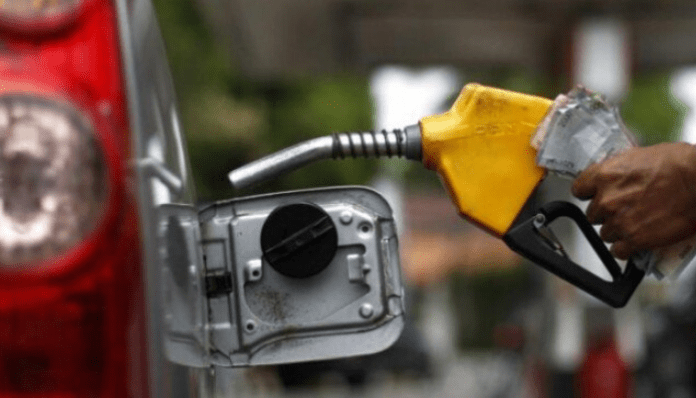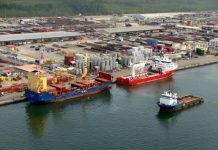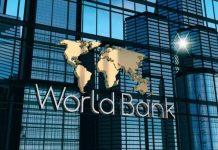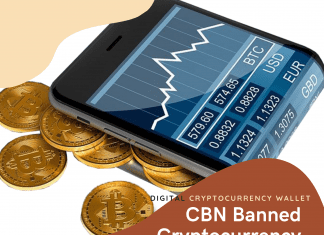On Tuesday, the Nigerian National Petroleum Company Limited and fuel marketers affiliated with the Independent Petroleum Marketers Association of Nigeria battled once more over the elimination of petrol subsidies.
This occurred against the backdrop of the naira’s decline versus the US dollar at both the official Investors & Exporters Window and the parallel market.
The local currency finished at 998/dollar on Tuesday in the official market, while it traded at 1,225/dollar in the black market.
On the back of the falling naira, economists and oil marketers claimed that PMS subsidies were increasing in recent times, but the NNPC quickly refuted these claims, declaring that it was recovering its full cost on the importation of Premium Motor Spirit, also known as petrol.
Bismarck Rewane, Chief Executive Officer of Financial Derivatives Company, indicated during a live television programme on ChannelsTV on Sunday that the fuel subsidy was decreased rather than withdrawn.
Similarly, oil marketers informed our correspondent on Tuesday that petrol subsidies were increasing due to the naira’s depreciation against the US dollar and the rising cost of crude oil, emphasising that in a free market, PMS should sell for N1,200/litre.
Petrol, which is only imported into Nigeria by the NNPCL, is presently priced between N617/litre and N660/litre, depending on where you buy it in Nigeria.
Speaking on the subject, Dr Muda Yusuf, Chief Executive Officer of the Centre for the Promotion of Private Enterprise, stated that there was a partial subsidy on petrol, but that the commodity was subsidised by the government for political, social, and economic reasons.
Complete cost recovery
When contacted, NNPCL’s Chief Corporate Communications Officer, Olufemi Soneye, labelled economists’ and marketers’ perspectives as assumptions, and asserted that the Federal Government had stopped subsidising petrol.
President Bola Tinubu declared the end of petrol subsidies at his inaugural speech on May 29, 2023, a declaration that NNPCL successfully enforced the next day.
Before Tinubu’s pronouncement, the pump price of fuel was less than N190/litre, but it surged to more than N500/litre after the President’s statement, and then jumped again a few weeks later to more than N600/litre.
When asked if the NNPCL, as Nigeria’s sole importer of petrol, was subsidising the product, the oil firm’s CCCO responded, “We prioritise our time on substantive matters rather than responding to assumptions.”
“At NNPC Ltd, we prioritise national development by ensuring energy security and long-term growth.” We reaffirm that the Nigerian government does not provide gasoline subsidies; we recover the entire cost of our imported items.
“As a global energy company, our focus remains on fostering a vibrant and energy-secure Nigeria.”
‘Reduced Subsidy’
While appearing on a live television programme on Sunday evening, Rewane emphasised that the subsidy on petrol was decreased rather than withdrawn, as he also highlighted the effects of the drop in gasoline subsidy and how it was hurting salary earners in Nigeria.
He went on to say, “At the inauguration, it was said that (fuel) subsidy was gone but subsidy was actually reduced.”
He explained, “There is the convergence of exchange rates and the reduction of the windows into one.” As a result, funds have been moved from consumers to the government.
“Subsidies are reversed taxes; reducing them raises people’s taxes and reduces their income.” What happened is that government revenue surged by 44% between May and June of 2023. The government has received funds, but what is the government doing with them?
“Consumers, on the other hand, had a minimum wage of $40 per hour in 2002.” It was around $70 in 2019, however it has now been decreased to $24″
Marketers anticipate N1,200 per litre.
Chief Ukadike Chinedu, National Public Relations Officer of the Independent Petroleum Marketers Association of Nigeria, indicated that petrol subsidies were increasing and that the price of the commodity in a free market should be around N1,200/litre.
“To be pragmatic in this analysis, consider the current price of petrol in the United States.” Premium petrol costs $2.99 per gallon, while super petrol costs $3.15 or $3.10 per gallon, depending on where you live in the country.
“Now, $3 is worth more than N3,000 in Nigeria because a dollar in the parallel market is worth more than N1,000.” You can also see the cost of diesel, which is above N1,000/litre, and it is crucial to note that in a free market, petrol is normally more expensive than diesel.
“So if you consider the cost of diesel, dollar and other international factors, the price of petrol in Nigeria should be around N1,200/litre, but the government is subsidising it, which to an extent is understandable,” he said.
Ukadike remarked that he had previously mentioned that the government was imposing quasi-subsidy, which means that “the Federal Government, instead of taking out the subsidy by 100 percent, decides to take out about 50 percent.”
However, the IPMAN official expressed optimism that the cost of refined petroleum products will fall once the Port Harcourt and Dangote refineries began producing the commodities.
“When you consider what the government is currently doing, I also believe that petroleum product prices will fall this year.” The addition of the Port Harcourt refinery and the delivery of crude to the Dangote refinery are both positive developments in the industry.
“Their operations will help stabilise the price of PMS and other petroleum products in Nigeria, because it will definitely cut down the importation of products,” he said.
For social and economic considerations.
The CEO of the Centre for the Promotion of Private Enterprise stated that the subsidy was kept in place due to the economic, social, and political repercussions.
“To protect citizens from further hardship,” Yusuf explained, “the government appears to have applied the brakes on subsidy removal.” We are all witnesses to the anguish and misery that citizens are experiencing.
“So, when you adopt some of these policies, particularly these liberal economic policies, you have to moderate your position for social reasons.”
“Just as the World Bank predicted, if we leave the price entirely to market forces and liberal economic policies, the fuel price will be higher than N800/litre.” Can any government that cares about its citizens’ feelings allow it to happen?
“Even if that is the best option economically, economics must always have a human face.” So the government has moderated the reform, which is why I believe the government has urged that the NNPC keep the price at its current level.”
Yusuf stated that the government must weigh the benefits and drawbacks of subsidies, emphasising that eliminating subsidies completely will exacerbate economic hardship.
“Those of us who advocated for the removal of the subsidy can see that it has been partially removed, but look at the consequences.” It may appear to be economical, but it is extremely costly socially and politically.
“As a result, those in government must weigh all of these factors.” They must strike a balance between economic, political, and social issues. That is why we have partial subsidies for both petrol and energy’, he explained.
The World Bank indicated in December that the Federal Government’s fuel subsidy was still being applied, as it demanded that the cost of PMS should not be less than N750/litre if there was no subsidy.
Naira at N988 per dollar
On the first day of official trading on the Investors and Exporters Window on Tuesday, the naira closed at N988.46/$.
According to FMDQ Securities Exchange data, this is an 8.97% decrease from the N907.11/$ it concluded trading on Friday (the last day of official trading for 2023). This is the continuation of a disturbing trend for the naira, which was one of the worst performing currencies in 2023.
According to Bloomberg, 2023 was the naira’s worst year, a status that 2024 may challenge. It stated that the national currency had lost around 55% of its worth as of Thursday, 28th of March, 2023.
The naira was the third worst-performing global currency in 2023, according to Kyle Chapman, FX markets analyst at London-based Ballinger & Co, because to a backlog of unsettled forwards, unfulfilled promises of dollar inflows, and a two-decade peak in inflation.
“The naira’s downward momentum is likely to continue through much of 2024, and its ultimate trajectory will depend on whether the CBN’s rhetoric is translated into concrete policy moves that increase the flow of US dollars into Nigeria and shore up trust in the official market,” Chapman said.
“If the CBN’s promised measures are implemented and Tinubu’s government enacts structural changes to increase oil production or drive foreign investment, the naira has plenty of room to rise from its record lows.” However, a rapid repair is doubtful, and more devaluation will be necessary to compensate for supply and demand mismatches.”
The World Bank said in its December Nigeria Development Update that the naira had fallen by 41% in the official market and 30% in the parallel market against the US dollar. It stated that higher volume is required for the naira to stabilise in the official market.
“Further monetary policy tightening is expected to help underpin the value of the naira,” it stated. However, there is also a need to expand the market’s FX supply. Facilitating FX flows, particularly from all exports, via the NAFEM can give additional volumes in the official window, which can help ensure stability.
“In addition, clarity on the CBN’s net reserve position, and on the CBN’s continued progress in clearing the FX backlog, would also strengthen market confidence.”
The NNPCL keeps track of thefts.
Meanwhile, the Nigerian National Petroleum Company Limited reported 112 incidences of crude oil theft in the Niger Delta in one week on Tuesday.
It stated that the oil theft instances occurred between December 23, 2023 and December 29, 2023, and that 42 illegal refineries were discovered in various areas throughout the oil-rich region in the previous week.
It specified Konsho and Tebidaba in Bayelsa State, Obokofia in Imo State, and Ogidigben, Mereje, and Obodo Omadina in Delta State.
The oil company made the announcement in a documentary posted on its official X Twitter, adding that “illegal refineries in Umuire, Abia State, and Upata, Rivers State, were also discovered and destroyed.”
It further alleged that 14 unlawful connections were detected in various sections of the Niger Delta, as well as a tunnel covering an illegal connection in Owaza, Abia State, and that 10 incidences of vandalism were discovered.
The business says in the two-and-a-half-minute DVD, “Illegal storage sites were discovered in Ebocha and Tonne Kiri in Rivers State where oil pits were discovered.”
“Sacks of crude oil were discovered in Ogbia, Bayelsa State.” More unlawful storage facilities were discovered in Urhonigbe, Edo State, as well as Ekuku-Agbor and Bomadi, Delta State.”
According to the firm, 22 wooden boats transporting stolen oil were discovered in Rivers State’s Okrika and Tombia, as well as Emereje, Delta State.
It was said that 11 vehicle arrests were made in Delta State during an operation, while eight of these (oil theft) events occurred in deep water, 46 in the eastern region, 32 in the central region, and 26 in the western region.
“Between the 23rd and 26th of December, 2023, 18 suspects were arrested,” the national oil corporation said, adding that it would not relent in its fight against crude oil theft.
Nigeria loses billions of naira to oil theft and struggles to satisfy the country’s output quota set by the Organisation of Petroleum Exporting Countries due to the threat of oil thieves.
Join Television Nigerian Whatsapp Now
Join Television Nigerian Facebook Now
Join Television Nigerian Twitter Now
Join Television Nigerian YouTUbe Now





